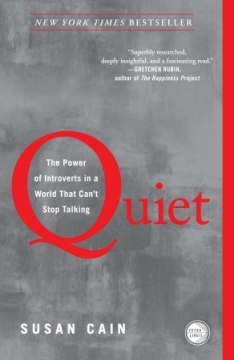- HOME
- INTRO TO THE FORUM
- USE AND MISUSE
- BADLY WRITTEN, BADLY SPOKEN
- GETTING
TO KNOW ENGLISH - PREPARING FOR ENGLISH PROFICIENCY TESTS
- GOING DEEPER INTO ENGLISH
- YOU ASKED ME THIS QUESTION
- ADVOCACIES
- EDUCATION AND TEACHING FORUM
- ADVICE AND DISSENT
- MY MEDIA ENGLISH WATCH
- STUDENTS' SOUNDING BOARD
- LANGUAGE HUMOR AT ITS FINEST
- THE LOUNGE
- NOTABLE WORKS BY OUR VERY OWN
- ESSAYS BY JOSE CARILLO
- Long Noun Forms Make Sentences Exasperatingly Difficult To Grasp
- Good Conversationalists Phrase Their Tag Questions With Finesse
- The Pronoun “None” Can Mean Either “Not One” Or “Not Any”
- A Rather Curious State Of Affairs In The Grammar Of “Do”-Questions
- Why I Consistently Use The Serial Comma
- Misuse Of “Lie” And “Lay” Punctures Many Writers’ Command Of English
- ABOUT JOSE CARILLO
- READINGS ABOUT LANGUAGE
- TIME OUT FROM ENGLISH GRAMMAR
- NEWS AND COMMENTARY
- BOOKSHOP
- ARCHIVES
Click here to recommend us!
READINGS IN LANGUAGE
This section features links to interesting, instructive, or thought-provoking readings about the English language and related disciplines. The selections could be anywhere from light and humorous to serious and scholarly, and they range widely from the reading, writing, listening, and speaking disciplines to the teaching and learning of English.
Introverts constitute a vast reservoir of untapped talent, says book
Who benefits society more—the extrovert who loves to talk, mix and team up with people to get things done, and routinely engage in self-promotion, or the introvert who’d rather listen than talk, who’d quietly innovate and create with nary a desire for self-promotion, and who’d prefer getting things done alone rather than teaming up with others?

In her best-selling book Quiet: The Power of Introverts in a World That Can’t Stop Talking (Broadway Books, 368 pages), Susan Cain argues that America pays a high social cost by giving too much premium to the achievements of its extroverts to the point of grossly undervaluing the social contributions of its introverts. She says that she was prompted to write the book in defense of introverts—a segment that constitutes one-third of the American population—for the same reason that Betty Friedan published The Feminine Mystique in 1963.
“Introverts are to extroverts what women were to men at that time—second-class citizens with gigantic amounts of untapped talent,” Cain says. “Our schools, workplaces, and religious institutions are designed for extroverts, and many introverts believe that there is something wrong with them and that they should try to ‘pass’ as extroverts. The bias against introversion leads to a colossal waste of talent, energy, and, ultimately, happiness.”
Cain’s book is not simply a rah-rah pitch for introverts as undervalued members of American society. It is a well-researched, well-told exploration of introversion for the lay reader, using both old and the latest findings in psychological research and neurochemistry as well as many case studies of successful introverts like Rosa Parks, Chopin, Dr. Seuss, and Steve Wozniak, each of whom had made remarkable contributions to society, as well as unheralded successful introverts in the various professions. For its erudition, depth, and incisiveness, Quiet has made it to the top of the New York Times Science Best Sellers list aside from becoming a highly popular nonfiction best-seller that’s now being translated into 30 languages.
Read an excerpt from Susan Cain’s Quiet in the RandomHouse.com website now!
ABOUT THE AUTHOR:
Susan Cain, an American writer and lecturer, is an honors graduate of Princeton University and Harvard Law School. After working first as an attorney and then as a negotiations consultant as owner and principal of The Negotiation Company, she left her careers in corporate law and consulting to live a quieter life of writing at home with her family. Her work has been featured in The New Yorker, Harvard Business Review, The Atlantic, Fortune, Forbes, Scientific American, and several other major publications. Quiet is her first book.
Click to read comments or post a comment
View the complete list of postings in this section
(requires registration to post)






